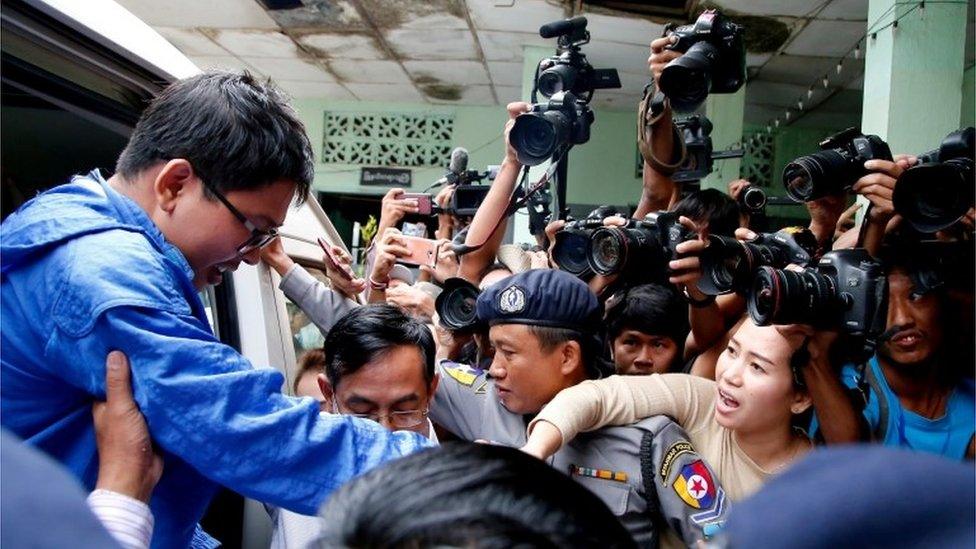Myanmar Rohingya crisis: Reuters reporters stay jailed
- Published

Wa Lone arriving at court - his wife, amongst the photographers, reached for his hand
Two Reuters journalists working on coverage of the Rohingya crisis in northern Myanmar have been remanded in custody for two more weeks.
Wa Lone and Kyaw Soe Oo were detained on 12 December after meeting police officers offering them information.
They are charged with illegally obtaining information, but Reuters has called for their release and says they were simply doing their jobs.
The two will now be held at Insein prison in Yangon (formerly Rangoon).
Wa Lone, 31, and Kyaw Soe Oo, 27, were previously in custody in a police compound.
They have been charged under the Official Secrets Act, introduced under British colonial rule. It allows a maximum 14-year jail term.
The government says the two "illegally acquired information with the intention to share it with foreign media". They had been invited to dinner with the police officers.
Appearing at Mingaladon court, the journalists were allowed to see their families and lawyer for the first time.
Kyaw Soe Oo was met by his sister at court
The conflict has seen some 665,000 Rohingya flee Rakhine state. The military says it is fighting Rohingya militants and denies targeting civilians.
But the United Nations describes the offensive as a "textbook example of ethnic cleansing".
The authorities see the Rohingya, who are Muslims, as illegal immigrants from Bangladesh and deny them citizenship.
Access to Rakhine state is very tightly controlled and journalists are forced to seek information from other sources, says ģÉČËŋėĘÖ South East Asia correspondent Jonathan Head.
Despite improvements in media freedom since the military relaxed its grip on Myanmar five years ago, journalists have continued to face criminal prosecution for their reporting, with more than a dozen arrested over the past two years, he adds.
- Published23 January 2020
- Published11 September 2017
- Published27 November 2017